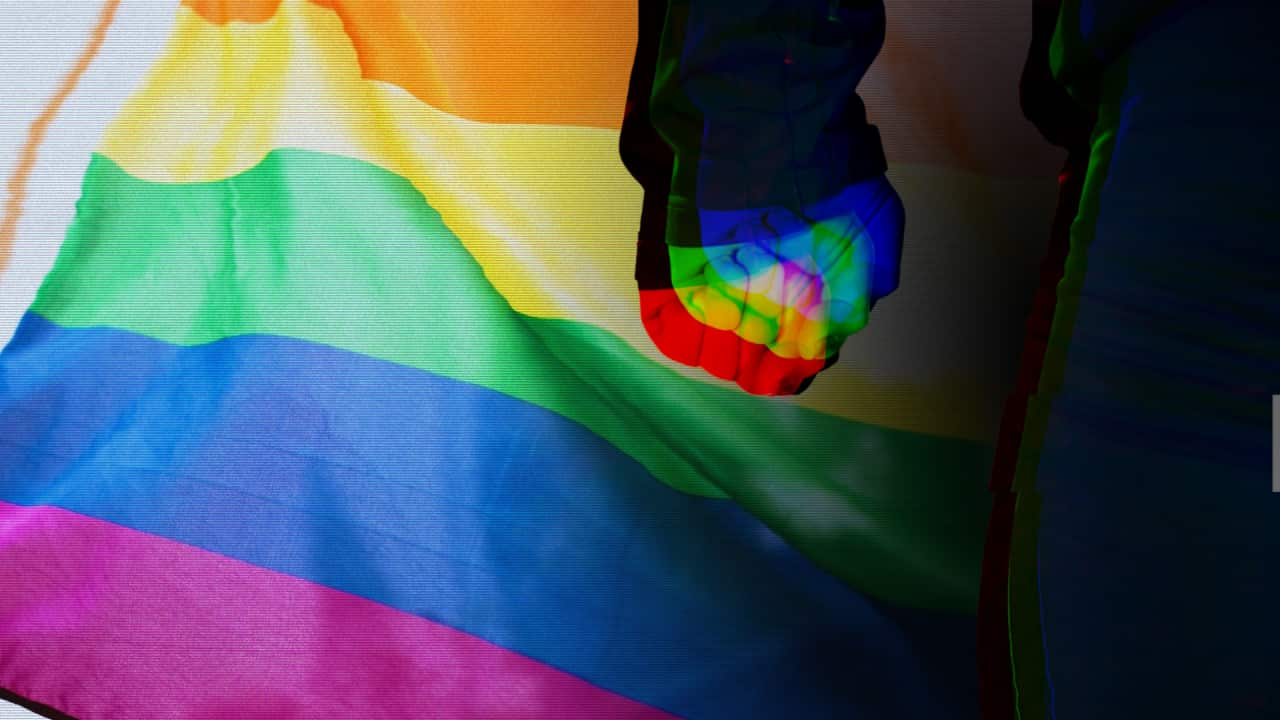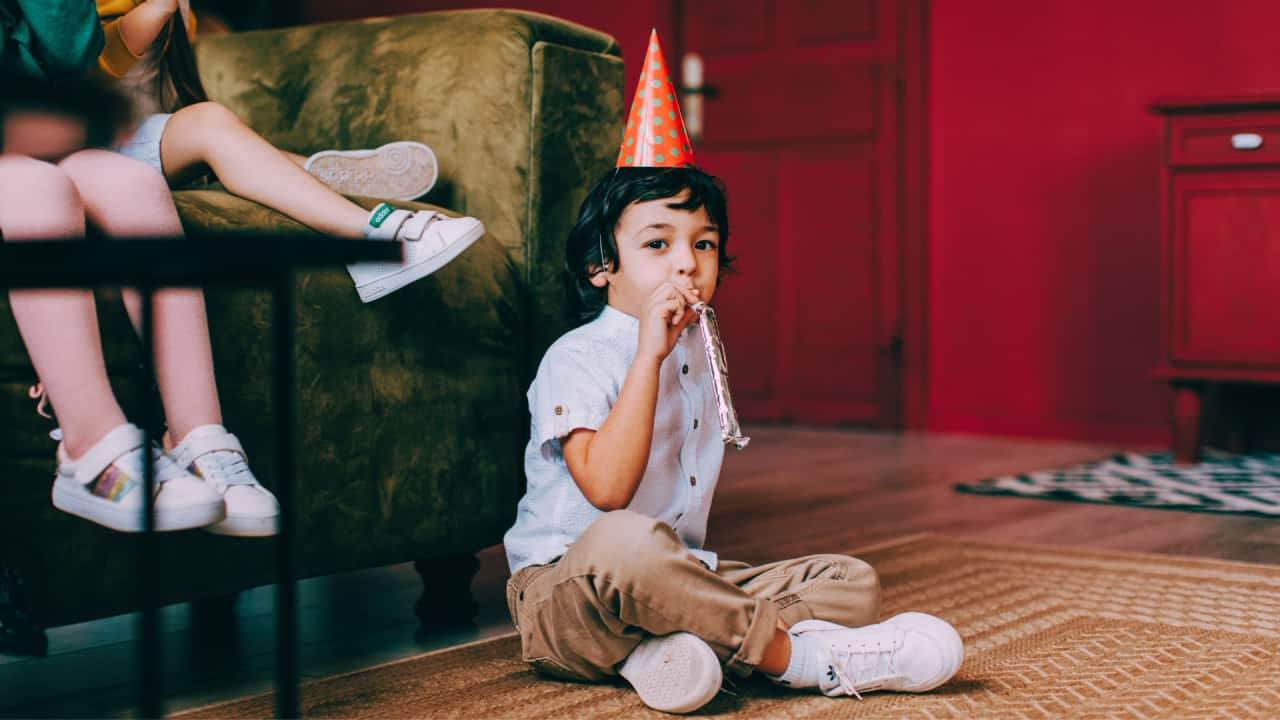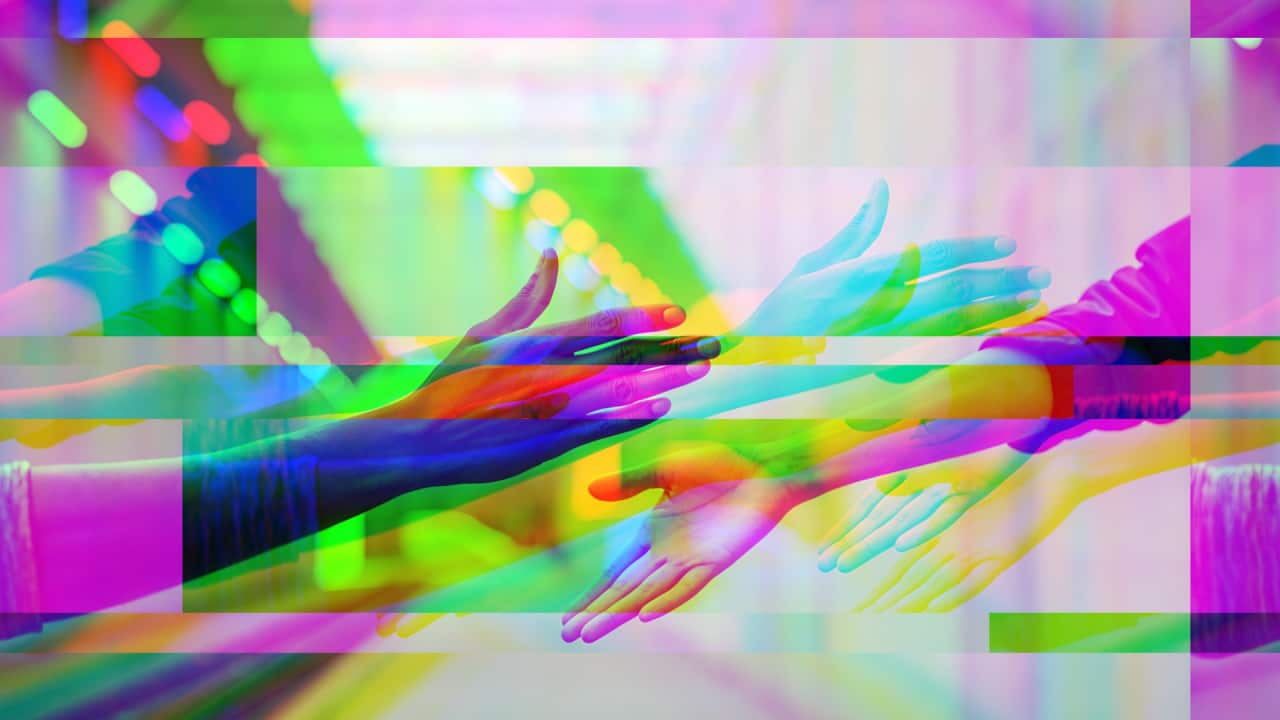spk_0
SBS acknowledges the Traditional Owners of Country throughout Australia.
Nic
From SBS Examines, I’m Nic Zoumboulis. In this episode of Understanding Hate, we’re looking at homophobia in Australia. It’s a form of hatred that's been in the spotlight after a recent series of high-profile attacks made on gay men. Victoria Police allege several groups of offenders, primarily young males aged between 13 and 20, have been posing as legitimate users of online dating platforms to lure gay men into meeting them. The victims are then allegedly assaulted, robbed, threatened and subjected to homophobic comments. There have been similar attacks reported in New South Wales, the ACT and Western Australia, all targeting gay men.
Justin Ellis
So we know from media reports and prosecutions that we've got an increase in homophobia and attacks or prejudice against sexual minorities are often underreported.
Nic
That’s Dr Justin Ellis, a criminologist from the University of Newcastle.
Justin Ellis
People may be learning about these attacks, through some of them being posted online and that term posting and boasting. They may be sharing them in private groups, that may again, embolden particular people to go out and perpetrate these attacks themselves.
Nic
Dr Ellis says there's been a resurgence of old homophobic tropes, falsely equating gay men with paedophiles.
Justin Ellis
This labelling of same sex attracted men and drag queens as child groomers has come to the surface again. We saw in 2023 in particular, a big focus on drag queen story time childhood literacy events by conservative religious groups and by nationalist groups. So those groups are getting way more organised online, way more networked, sending threats online, maybe turning up at events in person and threatening and intimidating people.
Nic
Frank Bonnici, a gay man from Melbourne, was attacked in December last year.
Frank Bonnici
I was just walking, holding my partner's hand, crossing a bridge ready to go to the supermarket, a group of kids were yelling homophobic stuff to us. I decided to call back saying, yeah, what are you going to do about it? And then they just looked at each other, hooded up, approached us, and yeah, eventually they took out a machete and just swiped at me. So, I'm lucky to be alive.
Nic
Frank faced weeks of rehabilitation and says he's still deeply traumatised by what happened. But homophobia isn’t always so extreme or violent.
Victor Wu
The Chinese experience is more marked by silence or unwillingness to acknowledge or talk about it even when you've come out.
Nic
That’s Victor Wu. He’s a filmmaker who identifies as gay and queer. He says queer people from a Chinese background often face pressure and shame due to cultural expectations.
Victor Wu
Sometimes in the cultural community coming out is seen as like, you abandoning your cultural identity for the mainstream. So it's almost like it's a disloyalty. Some parents would be like, it's fine, we accept this, but don't talk about this openly.
Nic
We’ve recently seen homophobia making headlines in elite sport as well. Dr Erik Denison is a behavioural scientist from Monash University. He says when men use homophobic slurs in sport, it’s most often to fit in.
Erik Denison
When we say homophobic abuse, it's generally in the form of banter and negative language about gay people. What we found was it didn't matter if a young man or boy had very positive attitudes or had very negative attitudes, they're just as likely to use homophobic language. They're driven by a desire by young men to conform the behaviour of others and be accepted, and if they don't use this language, then they're viewed as weird and not part of the group.
Nic
Dr Denison says homophobia is also an issue at both a school and grassroots level.
Erik Denison
Rates of suicide and self-harm for LGBTQ plus kids are about double of any other kid, and about one in four of them have attempted suicide in the last year. When you look at those numbers, you think sport could save their life, but right now sport environments is unsafe for them and it needs to be made safe.
Nic
Tim Cassettari is a health coach based in Brisbane. He grew up playing football and loves the game.
Tim Cassettari
It's a big part of our family culture. My parents actually met through football. It's always been my favourite hobby, and it's always been a big part of my identity.
Nic
Tim came to believe playing football and being gay weren't compatible.
Tim Cassettari
When I was at school, one of my coaches basically said to everyone in the team, 'I would never have a gay person playing as part of my team'. And everyone else laughed at that. They thought it was hilarious. And I remember going home that night and praying that I wouldn't end up being gay because I wanted to be a soccer player.
Nic
When Tim came out as gay in his early 20s, he gave up football altogether. He stayed away from football for seven years, but eventually found his way back to the sport with a gay-friendly club.
Tim Cassettari
It's given me a safe place to play soccer. But it hasn't always been smooth sailing, there's been comments from the opposition, which has been really disappointing.
Nic
Dr Denison says to change the culture, we need to leverage group leaders and initiatives like pride matches.
Erik Denison
If you've played sport you know the captain and vice-captain, they're the people everyone follow and listen to and if you don't, you don't have a very fun time in that sports team and that's where we need them to really engage in driving change as well.
Nic
This episode was produced and presented by Nic Zoumboulis. To find out more, visit sbs.com.au/sbsexamines




